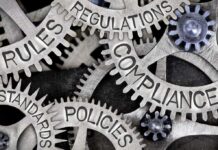
The AstraZeneca fraud investigation in China unveils widespread unethical practices that could significantly tarnish the global image of the pharmaceutical giant.
At a Glance
- AstraZeneca appointed Iskra Reic as executive vice president for international operations during an investigation into Leon Wang.
- Leon Wang, the China President for AstraZeneca, was detained by Chinese authorities.
- AstraZeneca’s shares plummeted by 8%, erasing $14 billion in market value.
- China is a major market for AstraZeneca, contributing significantly to its revenues.
A New Face Amid Scandal
AstraZeneca has named Iskra Reic as the new executive vice president for international operations. This change comes as the company grapples with leadership turmoil following the detention of Leon Wang, the firm’s previous head of international operations based in China. Wang is reportedly under investigation for alleged medical insurance fraud, though AstraZeneca denies any investigations pertaining to current or former senior executives for such charges. The appointment of Reic highlights the company’s effort to stabilize operations in overseas markets.
Reic comes with “extensive international experience across multiple disciplines,” as affirmed by CEO Pascal Soriot, positioning her as a capable leader amid challenging times. Her responsibility extends to guiding AstraZeneca’s strategy in ex-U.S. markets, encompassing regions from the Middle East to China. This strategic oversight is crucial as AstraZeneca attempts to mitigate the reputational damage caused by ongoing investigations and restore investor confidence.
The Depth of the Scandal
Leon Wang’s detention has sent shockwaves through the pharmaceutical industry. Reports allege that the fraud, involving the lung cancer drug Tagrisso, includes falsifying documentation to allow ineligible patients to receive insurance coverage. Investigations are underway across eight provinces, implicating more than 50 regional managers and sales representatives. These revelations have cast a spotlight on the ethical standards governing the company’s operations in China.
China is a critical market for AstraZeneca, contributing 13% of its $5.8 billion revenue last year, amid the country’s stringent anti-corruption campaign. The company has invested heavily in a $450 million factory and partnerships with local biotechs. However, this latest controversy raises concerns about whether AstraZeneca’s expansion strategy was excessively ambitious, potentially compromising ethical codes.
Fallout and Future Implications
AstraZeneca’s market value took a significant hit with an 8% drop in shares, erasing $14 billion, as the investigation unfolds. The repercussions extend beyond financial losses, impacting its reputation globally. The U.K.-based company faces a class action lawsuit in the United States, alleging the omission of vital legal information and misleading statements regarding its operations in China.
A previous instance of legal trouble saw AstraZeneca plead guilty to a felony charge of healthcare fraud, involving illegal marketing of a cancer drug. The company settled those accusations for $355 million. This background adds a layer of gravity to the current situation, suggesting a pattern of ethical lapses in the company’s history.
Corporate Response and Global Impact
AstraZeneca continues to affirm its innocence, stating that “none of our current or former senior executives are being investigated for Medical Insurance Fraud.” Despite these reassurances, the firm’s reputation as a reliable drugmaker is under scrutiny. Multinational companies operating in China might also face increased skepticism as authorities tighten regulations across various industries.
“We want doctors to prescribe what is best for their patients and not what is best for the doctor’s bank account.” – Richard G. Andrews
This scandal serves as a cautionary tale for corporations globally, emphasizing the importance of stringent ethical practices and transparency, especially in markets with complex regulatory landscapes. As AstraZeneca navigates these turbulent waters, its handling of the situation will define its future trajectory and influence the pharmaceutical industry’s approach to international operations.
Sources:
- AstraZeneca Names New International Operations Lead Amid Probe on China Exec – BioSpace
- Probe of AstraZeneca executive in China raises questions about company’s tactics
- AstraZeneca Pleads Guilty In Cancer Medicine Scheme – The New York Times












